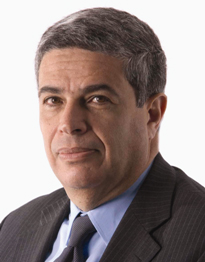The True Face of AUC |
|
|
I was very impressed by your coverage of the New Cairo
Campus in the last issue of AUCToday. The campus
move undoubtedly represents a transformational shift in
terms of AUC's capacity building and educational evolution.
From a small, niche university up to the late 1970s to the
preferred educational destination for Egypt's best and
brightest, AUC has now hopefully found the platform
needed to cope with the size constraints triggered by its own
success and to assume its natural role as the leading university
in Egypt and the Arab world. Leaving nostalgia aside, the Tahrir-Falaki campuses had, for many years, been overtaken not just by space issues, but also by events. Historically situated at the hub of Cairo's vibrant political, economic and cultural scenes, centered in the residential districts of Garden City and Zamalek and the corporate offices and cafés of downtown Cairo, the city has long since evolved beyond Tahrir Square. Demographic pressures have shifted the new socioeconomic balance of power toward the petro-dollar suburbs of Mohandiseen and Nasr City, and more recently to New Cairo and the Sixth of October City. AUC needed to evolve accordingly. New Cairo will, in my assessment, be the most successful of these new urban developments, given its central location and easy access. AUC's iconic New Cairo Campus will once again be located at the center of Egypt's political, economic and potentially cultural life and will be able to continue benefiting and cross-fertilizing with its surrounding environment through its large base of graduates, students and aspiring entrants. The transition to the New Cairo Campus is not just a locational shift or a structural achievement. It should represent a seminal opportunity to reaffirm, on a wider and stronger scale, the liberal values and moral fiber that have always given AUC its distinct character and identity in times of adversity as well as success. I am very encouraged by the clear attempt to retain a visual architectural link to the old campus, but it is more important to reinforce these core defining values at times of sharp and often conflicting change affecting Egypt and its region. The move to New Cairo also comes at very economically uncertain times. The financial meltdown in OECD countries has triggered a global recession, which will last through 2009 at least. All theories of economic de-coupling have been proven wrong. Egypt and the Arab world are not immune, as globalization works both ways. Better banking asset quality and good macroeconomic stewardship will hopefully reduce, but cannot deflect, the impact of the incoming economic tsunami. Egypt's income from workers' remittances, tourism receipts and Suez Canal tolls will be negatively impacted, and economic slowdown will follow. This is not meant as an alarmist, but a rational conclusion as to what is now an increasingly inevitable and growingly visible development. AUC, in turn, is not immune or de-coupled from the global economic downturn and its associated implications. In the coming crisis, revenues and donations will be impacted, but AUC should not just retire to an ivory tower existence in its impressive new campus until surrounding conditions improve. The intellectual capital residing in its faculty, students and alumni is its primary asset. Mobilized and motivated, it can make a significant difference. It should be directed to specific initiatives to meet the university's needs and to provide support beyond its campus by initiating programs, stimulating discussions and being actively involved in programs geared at helping the needy and unemployed who are most vulnerable to further economic pressures. While AUC inspires the envy of most average Egyptians, it is often mistakenly perceived as an elitist enclave with no strong affiliation to its host country. Its many socioeducational contributions are not sufficiently known, understood or appreciated. The coming difficult days are an opportunity for AUC to use the intellectual capacity residing in the new and old campuses, and their now greater resources, to show the true face of AUC as a liberal, nonsectarian, progressive and engaged institution answering the needs of its country to the extent of its abilities. A challenge beckons, and AUC should not be found lacking. Adel El-Labban '77, '80 is the chief executive officer and managing director of Ahli United Bank, Bahrain. |
